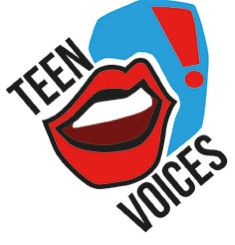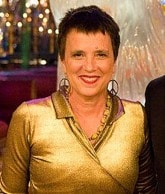
The following stories are provided in partnership with The Jewish Women’s Archive’s Rising Voices Fellowship, a 10 month program for female identified teens in high school who have a passion for writing, a demonstrated concern for current and historic events, and a strong interest in Judaism, gender and social justice.
Lazarus’ Lessons
by Sofia Heller
Emma Lazarus was a 19th century Jewish American writer whose poem “The New Colossus,” engraved on Lady Liberty’s platform, embraces immigrants as they enter the United States. Though she was from an upper class family, Lazarus defied societal restrictions and norms and dared others to do the same. She confronted sexism, anti-Semitism, and class struggles in her pursuit of a career in writing and activism.
Despite the fact that writing was an uncommon profession for women at the time, Lazarus rose in popularity and success. She took control of her own career, unencumbered by conventional societal ideals, and published her first book of poetry before she turned 18. She then sought out Ralph Waldo Emerson as a mentor.
Invited to write a poem for the plaque on the Statue of Liberty’s platform, Lazarus chose to cement a message of warm welcome to immigrants in “The New Colossus.” Lazarus’ poem resonates today, relaying a crucial message of inclusivity in a time of uncertainty–especially regarding the future of Deferred Action for Childhood Arrivals (DACA).
DACA was ushered in by an executive order signed by President Obama in June 2012. It’s a vital protection for people who immigrated to America as children but never gained legal status. The program allows these people–called Dreamers–to stay in the country with a two year renewable visa, and therefore emerge from under the radar without threat of deportation.
Five years later, President Trump has put DACA, an act of basic human compassion, in peril. In September of this year, Trump rescinded the DACA executive order. The deadline for eligible DACA recipients to apply for or renew a visa expired October 5. Now, Congress has six months–until March 5, 2018–to figure out a solution for the policy.
According to CNN, nearly 800,000 people will be forced to uproot their lives if the DACA program is taken away. These Dreamers have grown up only knowing America and its culture. They have gone to school here. They have planted their roots here. DACA gives Dreamers the ability to continue to participate in and positively contribute to American society.
When considering this new threat to DACA, we must remember Lazarus’ relevant lessons. Lazarus asks us to take responsibility for the wellbeing of all people. She asks us not to turn our backs on immigrants and to remember that, except for indigenous people, all Americans are immigrants. She asks Jews, specifically, to remember their hardships as immigrants. Lazarus asks us to see America as a country that, by nature, embraces immigrants with open arms.
Now more than ever, we must heed Lazarus’ iconic words: “Give me your tired, your poor,/Your huddled masses yearning to breathe free,/The wretched refuse of your teeming shore./Send these, the homeless, tempest-tost to me,/I lift my lamp beside the golden door!”
Lights, Camera, Social Change!
by Natalie Harder
I could probably quote the entire Spy Kids movie if you asked me to. I distinctly remember watching it for the first time at five years old, curled up on my friend Emily’s couch, hiding my face behind my hands because god forbid the evil Fegan Floop actually caught them!
Just about everyone owns that movie. It’s the movie you’ve seen a million times and every time you watch it you’re slightly horrified with yourself because you quoted the entire thing and sang some of the background music. But that isn’t what horrifies me most about Spy Kids now. What currently horrifies me the most is that its executive producer, Harvey Weinstein, has been accused by over 30 people of being a sexual predator.
Weinstein’s behavior has been brought to light at the same time as the #metoo movement. Actress Alyssa Milano tweeted early last month, encouraging people who have been sexually harassed or assaulted to tweet “me too” in order to “give people a sense of the magnitude of the problem.” I’m sure your Facebook or Twitter looked like mine, with post after post of “me too”s from my friends, my mom, and my friends’ moms. However, the Me Too Movement started a decade before Milano’s tweet, with Tarana Burke. Burke is an African American woman who is a victim of sexual assault, and who launched the Me Too campaign 10 years ago to help underprivileged women of color affected by sexual abuse. Burke’s goal through “Me Too” is to empower people through empathy.
 Gloria Greenfield, a Jewish feminist activist, noticed the same things that Burke did, only for a different minority community. As an active participant in the modern feminist movement, Greenfield made a splash when she went from identifying as a “Jewish radical feminist” to a “feminist Jew.” She told JWA that she is a “Jewish woman–a Jewish woman who is both feminist and Zionist.” As a minority, Greenfield saw the importance of standing up for herself and others’ whose voices might not have been heard. That being said, in the feminist movement, Greenfield was not a minority as a woman, but as a Jew. She wasn’t a feminist who happened to also be Jewish, she was a Jewish feminist who fought for the equality of all woman including Jewish women. Like Greenfield, I benefit from white and economic privilege, but, also like her, I have parts of my identity that are oppressed: my female identity, and my Jewish identity.
Gloria Greenfield, a Jewish feminist activist, noticed the same things that Burke did, only for a different minority community. As an active participant in the modern feminist movement, Greenfield made a splash when she went from identifying as a “Jewish radical feminist” to a “feminist Jew.” She told JWA that she is a “Jewish woman–a Jewish woman who is both feminist and Zionist.” As a minority, Greenfield saw the importance of standing up for herself and others’ whose voices might not have been heard. That being said, in the feminist movement, Greenfield was not a minority as a woman, but as a Jew. She wasn’t a feminist who happened to also be Jewish, she was a Jewish feminist who fought for the equality of all woman including Jewish women. Like Greenfield, I benefit from white and economic privilege, but, also like her, I have parts of my identity that are oppressed: my female identity, and my Jewish identity.
Greenfield eventually left the feminist movement because she and other Jewish women faced anti-Semitism from other feminists. Instead of kvetch-ing about this injustice though, Greenfield took to the media. As of now Greenfield has produced three documentaries: Unmasked Judeophobia, The Case for Israel–Democracy’s Outpost, and Body and Soul–The State of the Jewish Nation–to educate the general public about contemporary anti-Semitism. Like Burke and the #metoo Movement, Greenfield utilized the resources given to her to make her voice heard.
As a Jew, a feminist, and a person living today, I have a lot of strong feelings about many injustices currently plaguing our world. While I can (and do) moan and whine about these grievances quite a bit, Greenfield has shown me that there is a call to action for people like me, people who are passionate and angry and ready for change, not just a call to complain. Greenfield has shown me that individual’s actions can have great impact on others.
The Eve Ensler Monologue
by Josephine Rosman
I’ve always believed in the power of words. I’ve learned the most from engaging with individuals’ stories, and the way I best know how to influence others is through my writing. I believe that using words as a way to push for social change is profoundly meaningful, and Eve Ensler, author of The Vagina Monologues, is a perfect example of this phenomenon.
 In 1996, Ensler interviewed over 200 women on their thoughts and opinions about their vaginas. She then turned these interviews into a play: The Vagina Monologues. The award-winning play includes monologues from the perspective of a lesbian sex worker, a rape victim, and a menopausal woman, among others. Since its original premiere in New York, it has been performed in 35 languages in over 200 countries.
In 1996, Ensler interviewed over 200 women on their thoughts and opinions about their vaginas. She then turned these interviews into a play: The Vagina Monologues. The award-winning play includes monologues from the perspective of a lesbian sex worker, a rape victim, and a menopausal woman, among others. Since its original premiere in New York, it has been performed in 35 languages in over 200 countries.
The main concept behind the The Vagina Monologues is revolutionary. The play explores women’s thoughts on their bodies and sexuality, and brings to light issues and experiences that women all over the world face. By drawing attention to violence against women, the play functions as a weapon against the idea that women shouldn’t talk about the abuse they’ve faced. Through the stories shared in Monologues, the play encourages all women to love themselves and their bodies, and makes it easier for women to share their own stories. When women feel more comfortable using the word vagina and talking about their experiences, it serves as an important step towards asserting ownership over their own bodies.
The play has not only been meaningful for women who’ve seen it and participated in it, but it’s also led to concrete social change. Ensler used the play as a launch-pad to start V-Day, a campaign to end violence against women and girls. Activists have raised over $100 million at V-Day campaigns at colleges and in various communities, which has been used to fund anti-violence organizations, as well as to support others advocating against violence.
Ensler has paved the way for me, both as a feminist and as a writer, and she has provided a way for women all over the world to fight back against the ever-present threat of sexual violence. As a young woman who is passionate both about writing and making a difference, it’s encouraging for me to see how Ensler’s words and actions have significantly helped women and girls around the world. I hope I can emulate what Eve has done so eloquently and successfully, and use my words to change the world.



